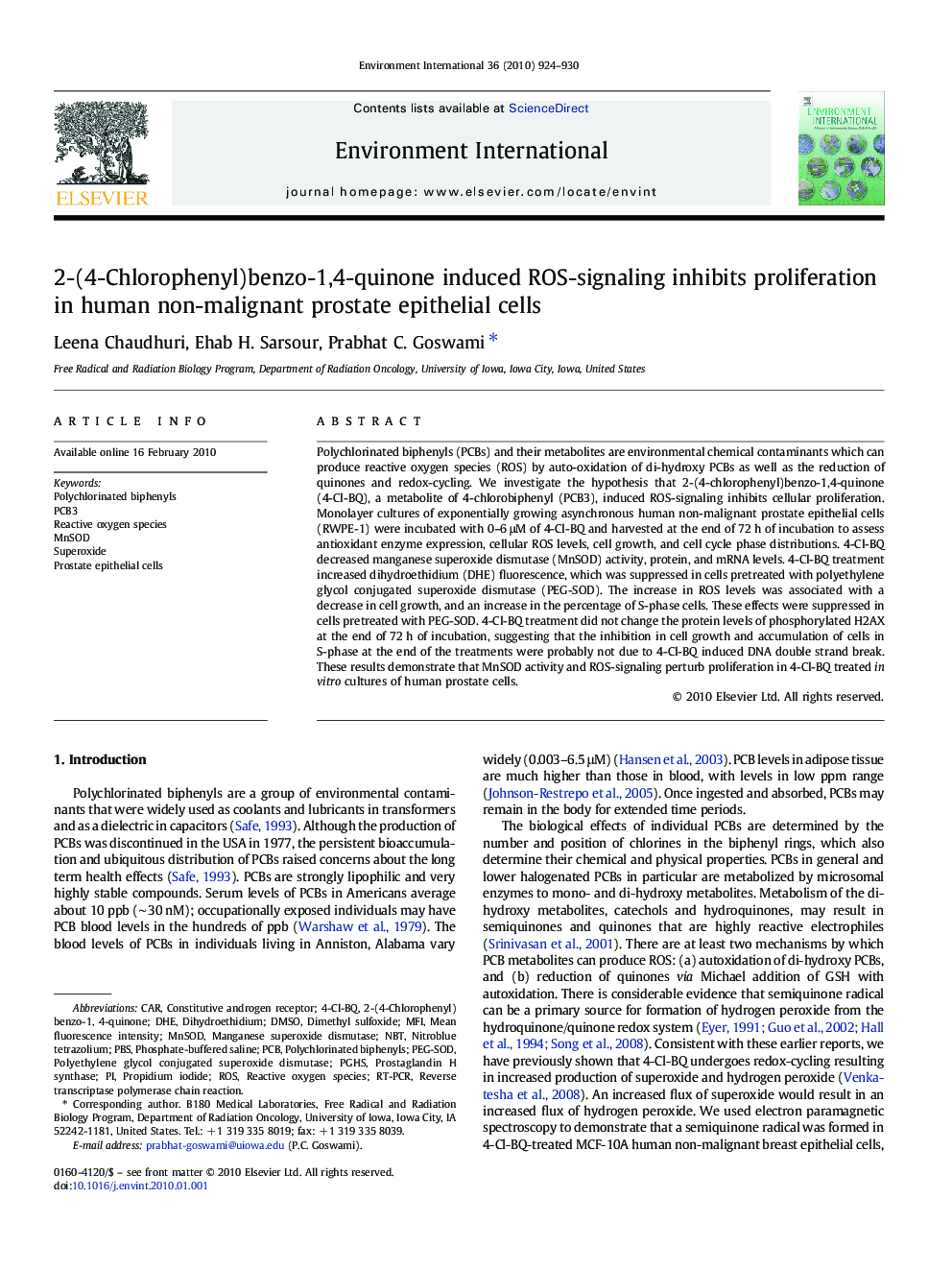| Article ID | Journal | Published Year | Pages | File Type |
|---|---|---|---|---|
| 4423209 | Environment International | 2010 | 7 Pages |
Polychlorinated biphenyls (PCBs) and their metabolites are environmental chemical contaminants which can produce reactive oxygen species (ROS) by auto-oxidation of di-hydroxy PCBs as well as the reduction of quinones and redox-cycling. We investigate the hypothesis that 2-(4-chlorophenyl)benzo-1,4-quinone (4-Cl-BQ), a metabolite of 4-chlorobiphenyl (PCB3), induced ROS-signaling inhibits cellular proliferation. Monolayer cultures of exponentially growing asynchronous human non-malignant prostate epithelial cells (RWPE-1) were incubated with 0–6 μM of 4-Cl-BQ and harvested at the end of 72 h of incubation to assess antioxidant enzyme expression, cellular ROS levels, cell growth, and cell cycle phase distributions. 4-Cl-BQ decreased manganese superoxide dismutase (MnSOD) activity, protein, and mRNA levels. 4-Cl-BQ treatment increased dihydroethidium (DHE) fluorescence, which was suppressed in cells pretreated with polyethylene glycol conjugated superoxide dismutase (PEG-SOD). The increase in ROS levels was associated with a decrease in cell growth, and an increase in the percentage of S-phase cells. These effects were suppressed in cells pretreated with PEG-SOD. 4-Cl-BQ treatment did not change the protein levels of phosphorylated H2AX at the end of 72 h of incubation, suggesting that the inhibition in cell growth and accumulation of cells in S-phase at the end of the treatments were probably not due to 4-Cl-BQ induced DNA double strand break. These results demonstrate that MnSOD activity and ROS-signaling perturb proliferation in 4-Cl-BQ treated in vitro cultures of human prostate cells.
